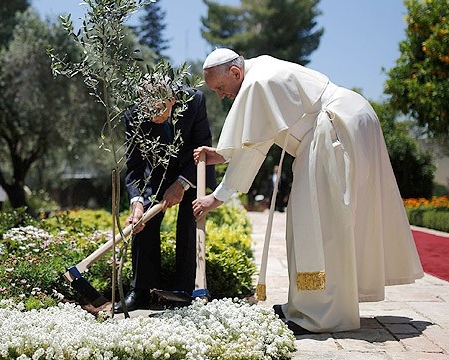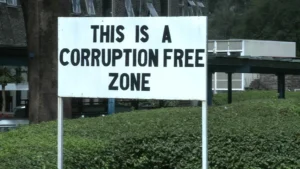When the first Pope from Latin America, Jorge Mario Bergoglio chose the name Francis for his papal identity, at his enthronement in 2013, it came as no surprise to those who had known his life of humility for decades. The name, derived from the revered Catholic figure, St Francis of Assisi, was meant to reflect the pontiff’s desire to focus on the needs of the marginalised in society.
But for environmentalists around the world, it is the Pope’s 2015 encyclical, named Laudato Si, that cemented his legacy as a veritable friend of the planet. In this unprecedented communication from the Holy See, the Pope reframed the ecological crisis that continues to plague the world, as a moral and spiritual imperative that was, ultimately, rooted in justice for both the earth and the poor.
The letter in which the Pope’s vision for a sustainable and equitable world is now immortalized, is divided into six interconnected chapters, bookended by a moving introduction and two closing prayers. In it, the Pope invokes the spirit of Saint Francis of Assisi, and makes a plea for all people to care for our shared environment.
Forever the intellectual, the Pope drew on scientific data, to present a damning evaluation of the present condition of the planet, stressing the pressing dangers of pollution, climate change, water shortages, biodiversity loss, and the profound inequities that leave the poor most exposed to environmental damage. This letter lent further urgency to the growing voices for the world to change course in light of the consequential Paris Agreement on climate change, also signed the same year.
The Pope who dared engage with many of the controversial issues of his time, tore into the greed of modern consumerism, blaming it squarely for the planetary imbalance. He delved into the intellectual and cultural origins of the climate crisis, criticising a technocratic attitude and a warped anthropocentrism that prioritise human desires above the health of the planet, arguing that these attitudes drove overconsumption, exploitation, and what he labelled a “throwaway culture.”
At the heart of the encyclical was what he termed as “integral ecology,” which holds that social, environmental, economic, and cultural concerns are inextricably linked. He thus contended that particularly for the poor and underprivileged, concern for environment could not be divorced from concern for human dignity.
But, unlike many environmental activists, the Pope did not stop at pointing fingers. Yes, he called out the powerful and frowned at the runaway greed. But in the end, the encyclical offered practical courses of action to save the planet. It supports strong environmental legislation, a move to renewable energy, sustainable development, and honest conversation among politicians, business, science, and religion.
The encyclical ends with two prayers: one for all decent people and one for Christians pleading for heavenly assistance in the shared responsibility to protect the world. Thus, in Pope Francis’ true fashion, Laudato Si, by use of this framework, provided not only a diagnosis and criticism but also offered hope and a moral foundation for creating a more fair and sustainable society.
That single letter reshaped institutional policies, birthed new climate ministries, and gave moral language to the science of sustainability. If every world leader acted with even a fraction of that conviction, our planet would be breathing easier today.
But Pope Francis did not stop there. In his 2023 apostolic exhortation Laudate Deum, he confronted climate change deniers head-on, urging immediate action against environmental collapse. On anything he deemed important, his voice rose even when many others fell silent.
On his death, which, perhaps befittingly, has fallen on the extended Easter weekend, let us reflect on the enduring legacy of one of the most consequential religious leaders in modern history. In an increasingly relativist world, where everything goes, the Pope stood out as a consistent, values-driven advocate for planetary stewardship and solidarity. Without fear or favour he grappled with real-world applications of Christian teachings in championing a more livable world.
Therefore, as the word mourns a compassionate and courageous religious and moral leader, may we not forget that we have also lost a formidable ally of the global environmental movement. The pontiff’s death could not have come at more inopportune time. His steady voice and moral authority stood out as one of the pillars of our shared humanity, as the world teetered on the edge of extreme insularity and intolerance.
Powerful nations like the United States have retreated from major climate agreements and weakened commitments to global environmental cooperation. This is, therefore, a significant blow to international environmentalism, not just because the Pope was a rare moral authority urging urgent climate action across faiths and ideologies, but because he embodied a unique ability to connect ecological care with human dignity.
His compassion, and long-term ethical vision in a time of deep political fragmentation, gave a soul to the global environmental agenda. His death must jolt us back to the reality of the existential danger we face as the human race.
May the legacy of Pope Francis continue to illuminate the path of justice, peace, and care for our common home.
Dr. Green is an ecopreneur, environmentalist and the Chief Steward of Green Africa Group


